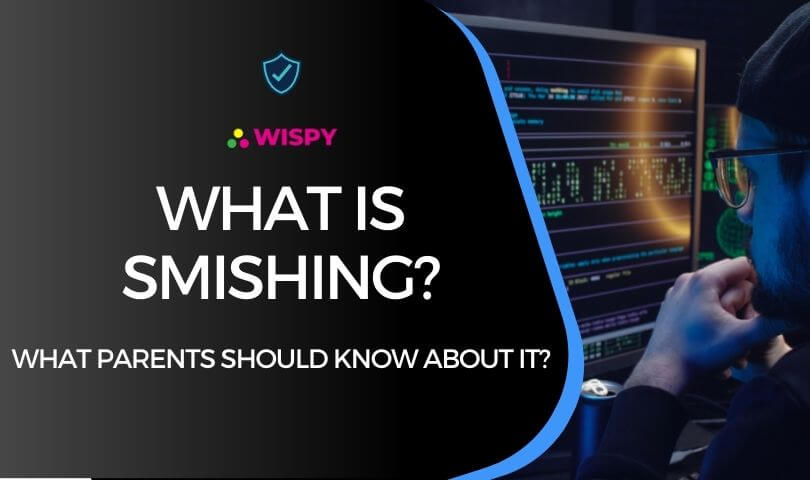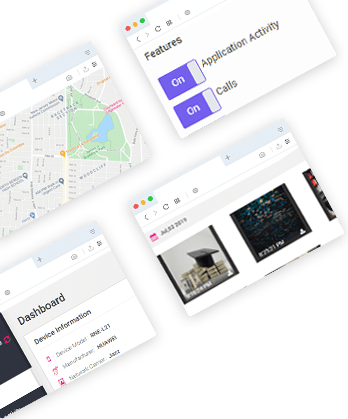

Categories
Recent Posts
What is Smishing? What Parents Should Know About It?
Posted in Cyberbullying by Mike

Smishing is the trickery of sending an SMS asking the receiver to share personal details about them. Just like phishing, the intention behind Smishing is to obtain confidential information to gain monetary benefits.
The technological revolution introduces us to new and new gadgets every year. Along with the advancement in the cyberworld, online threats are also emerging.
Did you ever receive a text message asking you to fill out a form in order to get specific rewards or gift hampers?
If you do, then it is undoubtedly a Smishing text.
Read on to find out what smishing messages look like and how you can prevent such security threats from happening.
What is Smishing? What Parents Should Know About It?
Online phishing is a ubiquitous cyber threat affecting millions of people in the internet space. Smishing is a kind of phishing that evolves into a more dangerous threat than phishing itself. Smishing is more hazardous than phishing because people are inclined to entrust text messages than emails. As the trick of phishing is known to many people, online users hesitate to click on unknown links received by emails. That is why hackers use Smishing to lure people into their deceit.
What is Smishing?
Smishing is a fusion of two words; SMS and phishing, aided by social engineering tactics. In Smishing, the perpetrator sends a compelling text to its target recipient, making him click the embedded malicious link to obtain all private information. Cell phones now hold our credit card details and other personal data that is not shareable with everyone. A smisher seeks information that he can use for his benefit. Smishing attacks can extract online passwords, credit card details, social security numbers, and so forth.
Let’s now discover how a smishing attack works.
How Does Smishing work?
Unlike phishing, it targets cell phones with alluring messages. However, both phishing and smishing work in the same manner. The smisher sends a captivative message directly to the contact number of their target. The text message either requests the recipient to share credit card details or click on the attached link containing malware to avail of incredible surprises.
Here are some specific details asked or targeted via Smishing;
- Social Security Number
- Online Account Passwords
- Credit Card Information
- Corporate Details
- Personal Information including; ID card number, date of birth, etc.
Smishers creatively engage their target, making them believe that they require the information for the benefit of their prey. Soon after the targeted person discloses the private information, the smisher starts misusing it for their own profit.
In general, smishing attacks drive on three factors;
- To gain trust
- Using personalized context
- Targeting the emotions
Suppose a person faces a financial crisis, and a sudden text message pops up, ensuring fast earning by entering a lucky draw. In that case, the target will promptly provide all the details to get fast cash. Similarly, guaranteeing free medical or educational services is another con of smishing attacks.
Related: What is Identity Theft & How it Destructs Your Online Presence?
Why Should Parents be Alert?
Nowadays, kids as young as 13 years old own personal smartphones. Tweens constantly use parental cell phones or tablets for playing games or watching funny videos. If you’ve not taught cyber etiquette to your kids, then there is a big possibility that they’d get lured by online threats.
In the worst scenario;
- Kids can click on Smishing malicious links.
- A smisher can apply for a new debit or credit card in the target’s name.
- The perpetrator can use the personal information of its target to catfish other people online.
If you own a business and your cell phone contains corporate information on it, then these attacks can devastate your venture. Although, smishers are mainly looking for something high-priced, such as your business information. Thus, it is necessary to keep your devices secure and inform your kids about the threats linked to phishing and smishing attacks.
How to Detect a Smishing Attack?
Smishing can steal your data in two ways; via malware link or a malicious website; either way, you will be clicking on an unidentified URL. However, it would be best to be vigilant while tapping on any link you receive via SMS or email.
Here are some examples of smishing messages you may receive;
- A text form ultimatum from your bank requesting your ATM card pin or other bank data.
- An SMS from a reputed company offering you premium discounts only by clicking on a link or filling up a form.
- A text message from law enforcement or other governmental agency asking for your personal details, including your ID card or social security number.
There are a million ways a smisher can use to lure his prey. If you receive a text message demanding your personal or corporate details, call the authenticated organization such as your bank or workplace and confirm if they sent the respective message. Or, if your gut feeling is skeptical about a specific text message, ignore the message right away.
What Can Parents Do to Avoid Encountering Smishing?
The trend of BYOD is getting more common these days. Cell phones help us in so many tasks that it is inconceivable to assume a life with no mobile devices. With teens being a vulnerable target, parents need to give them some guidelines to prevent phishing or Smishing.
Unfortunately, less than 35% of people are aware of smishing attacks. In 2020, the rate of Smishing ascended to 328%, infecting businesses to a greater extent.
Since kids believe what they see or read online, it is imperative to discuss cyber dangers and consequences.
As a parent, you may instruct your children in the following ways to prevent smishing attacks.
- Ask them to avoid installing apps from a text message. Instead, they must use an authentic app source or app store to install a specific mobile application.
- Tell your kids it is not necessary to answer every text they receive. Make them aware of smishing messages formats.
- Guide them to verify forms and websites before entering personal details.
Develop good online habits among your kids. Install a VPN and anti-malware on your kids’ phones to encrypt their cell phone usage.
To prevent kids from being a victim of smishing attacks, you need to discuss the importance of cyber security in detail. You can also install a parental control app on your child’s phone to detect and delete smishing SMS messages and phishing emails before your child clicks on any malicious link.
The End Note:
Everything is digitized, and even a single click to a malicious URL can steal all your personal details. Smishing may sound like an innocuous term, but its effects can turn your life upside down. It is common to receive promotional text messages regularly. Smishing includes social engineering tactics to lure individuals, propelling them to share confidential details. Such information is then manipulated or sold by smishers. Since adults somehow are aware of the prevailing cyber threats, online criminals lure children into such deceitful activities. Parents can set up an authentic parental control app on their kids’ phones to keep track of text messages and block smishing texters right away.
Categories
Recent Posts
Related Posts

How Internet Trolling is Cultivating Culture of Hate?
Trolling has become a headache for internet users. But don’t...
Read More
What is Sharenting? Does It Invite Unsolicited Dangers?
Sometimes parents and social media are inseparable. Parents feel over...
Read More
Online Shaming & Its Terrible Consequences – A Parental Guide
When the internet started booming, everyone rushed to grab the...
Read More

Install TheWiSpy Monitor App Now and Start Exploring Your Kid’s and Employee’s Digital Space
- Protect Your Kids
- Secure Your Business
- Backup Personal Data

- Products
- Features
- Social Media Monitoring
- Web Browsers HistoryNew
- Call Recording
- Track Call History
- Hack Phone Contacts
- Monitor Saved Photos
- Spy Microphone Surroundings
- App Monitoring
- Spy Text Messages
- Video Recording
- Voice Message Recording
- Wifi Log
- Spy Camera
- Remote Access to Target Phone
- 24/7 Instant Alerts
- GPS Location
- Pricing
- Blog
- Help
- +1 808-278-9881
- Demo
 Affiliate Login
Affiliate Login- Affiliate Registration
 Login
Login- Sign Up

 English
English Spanish
Spanish
 Spanish
Spanish